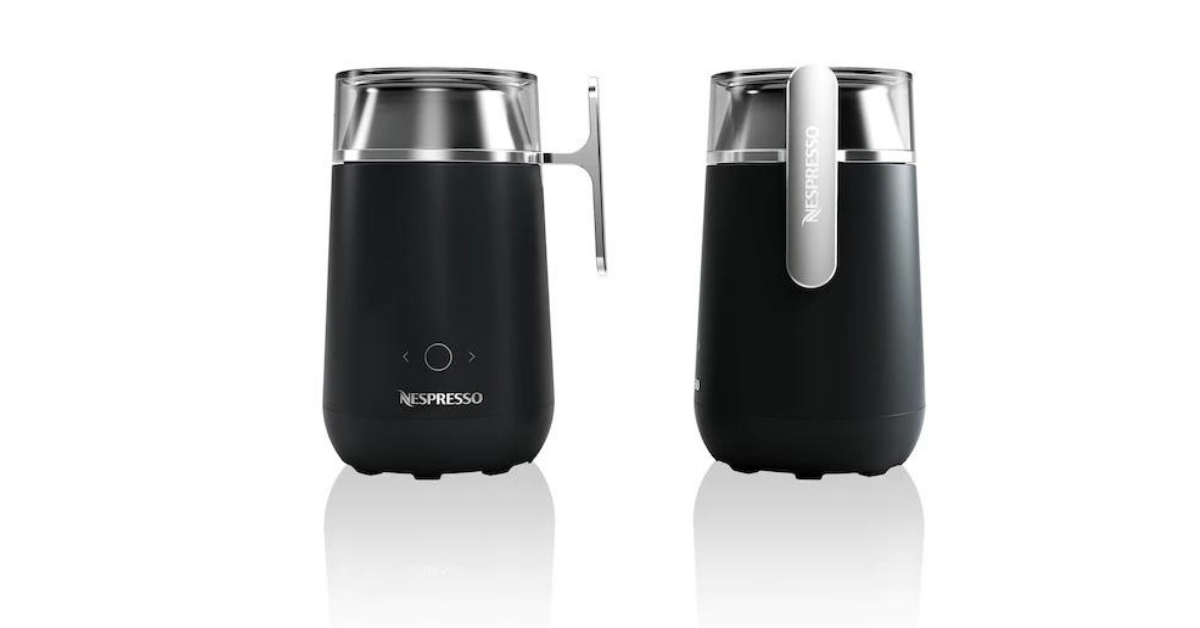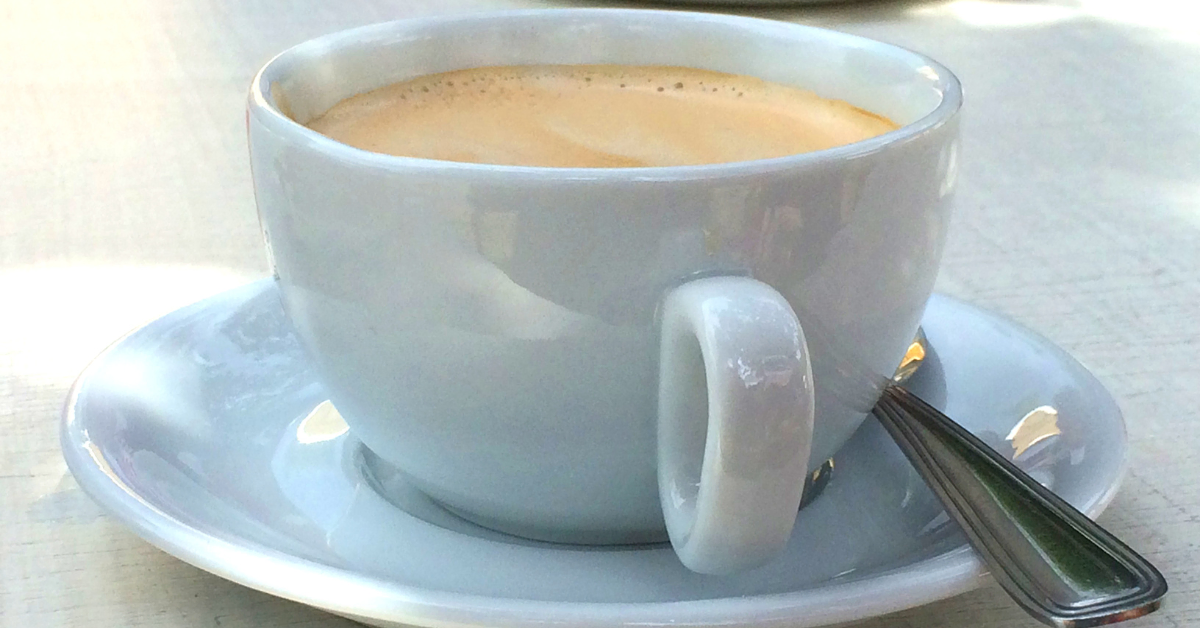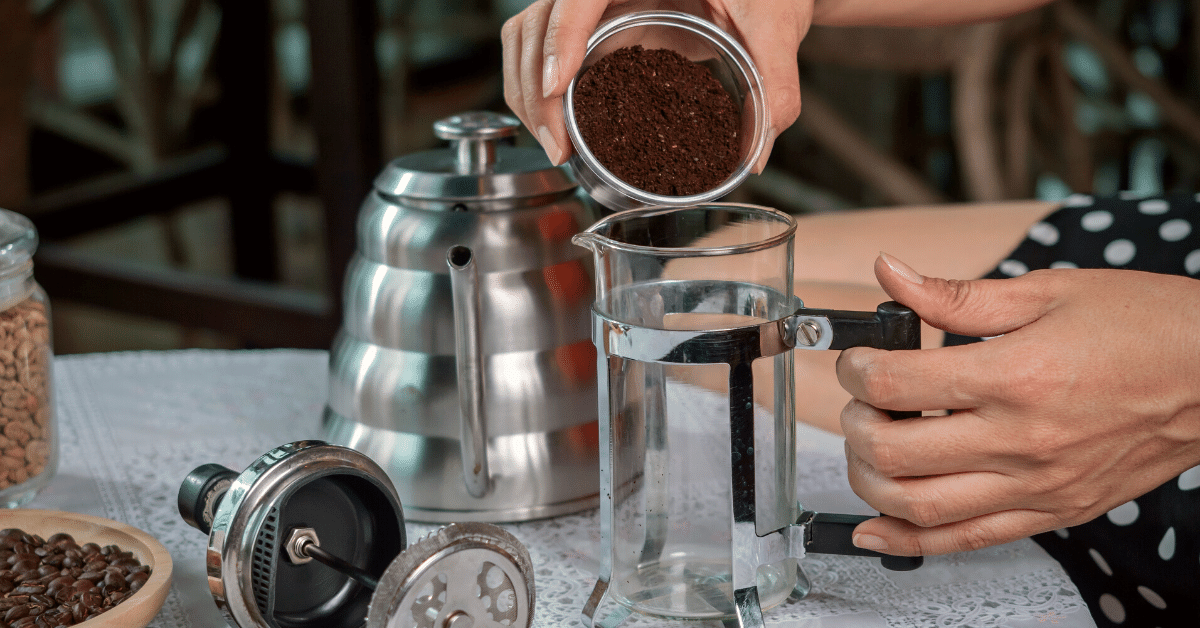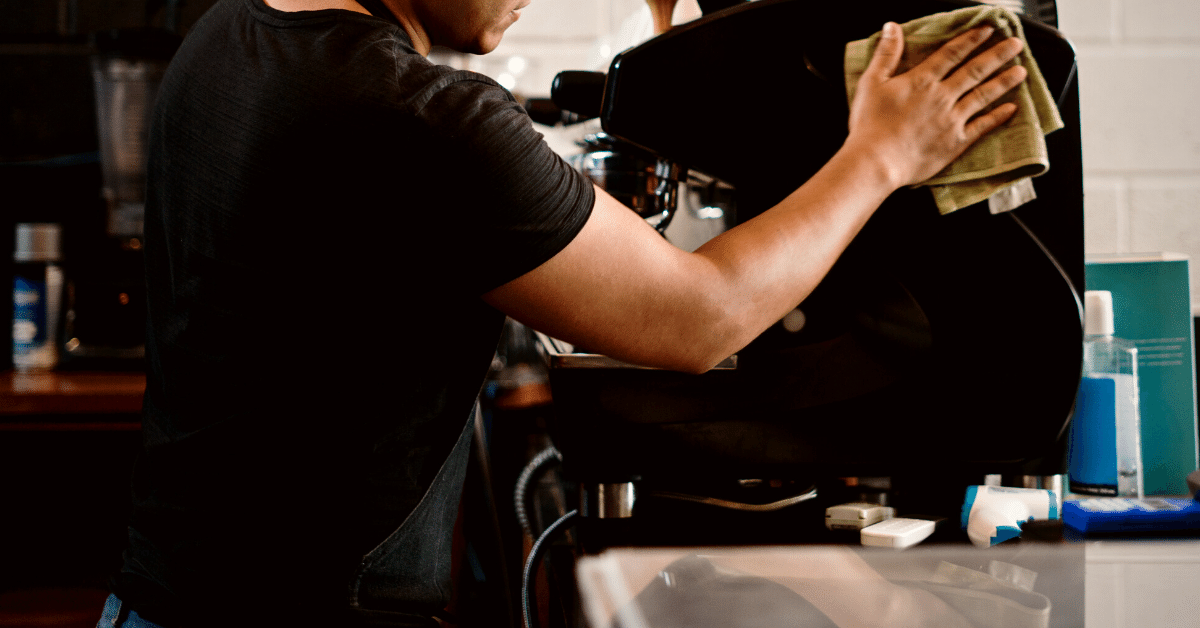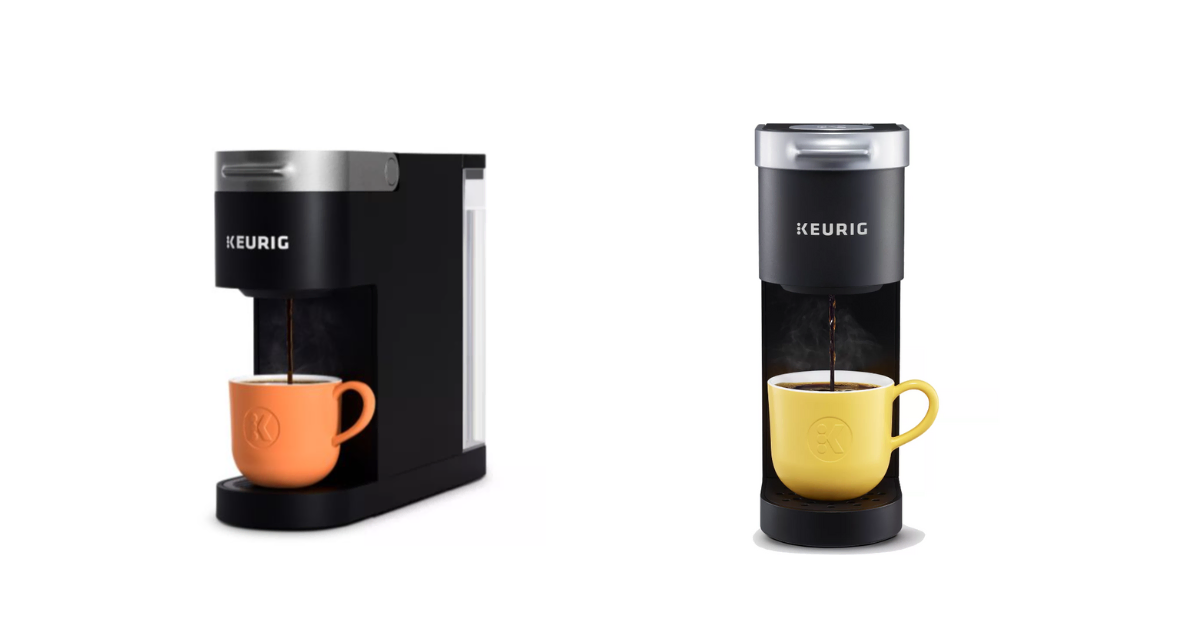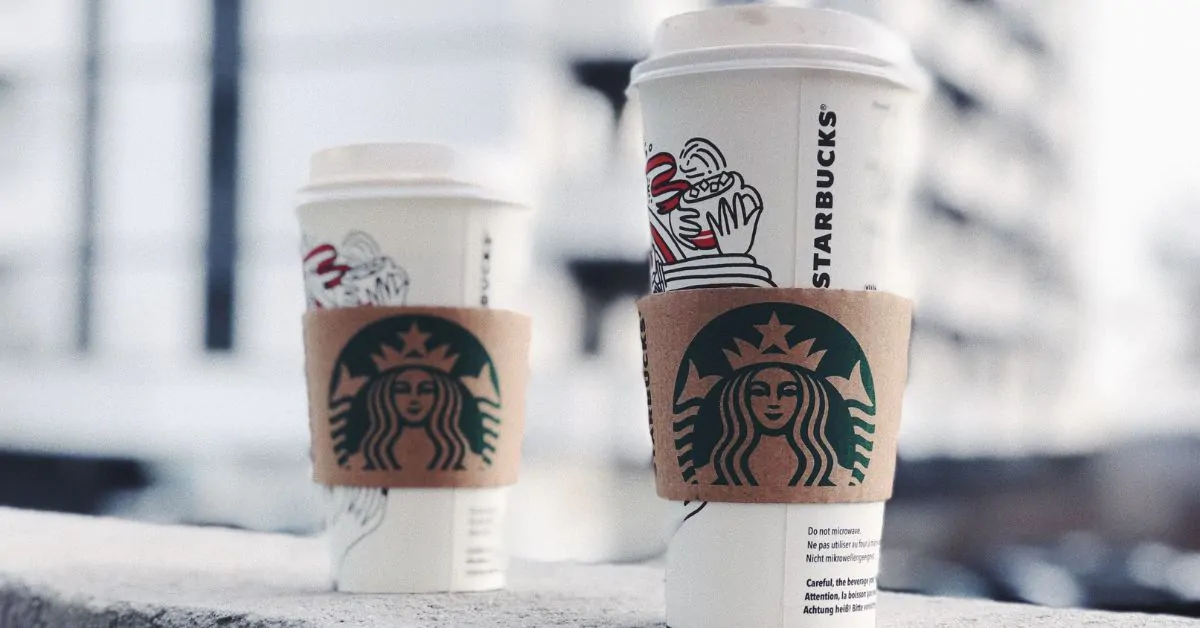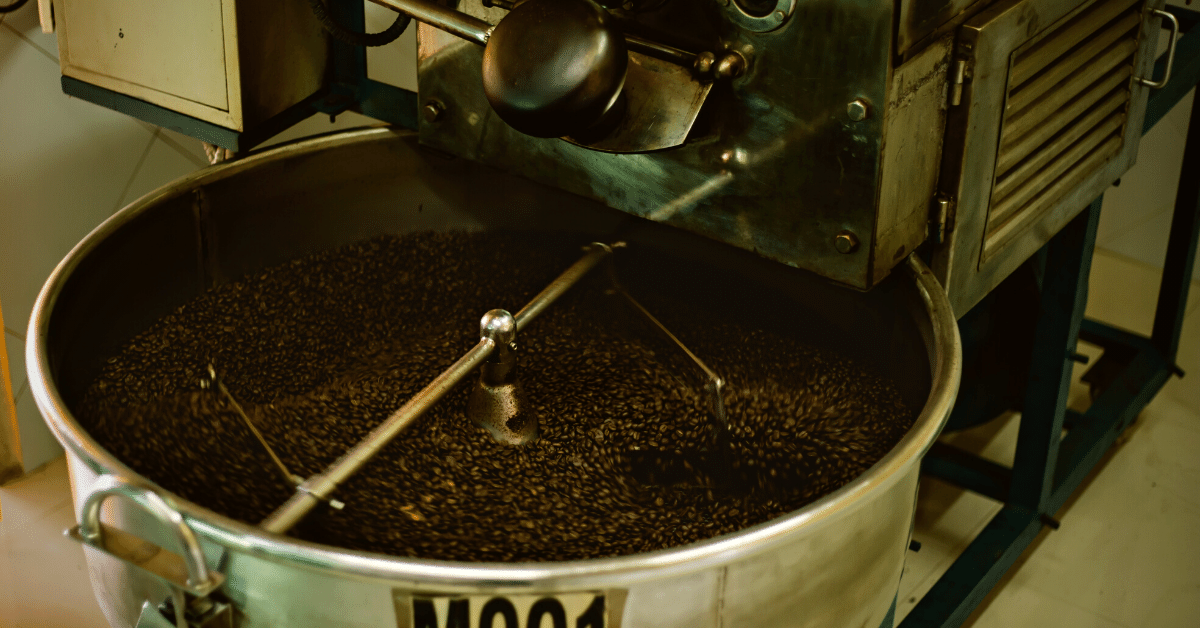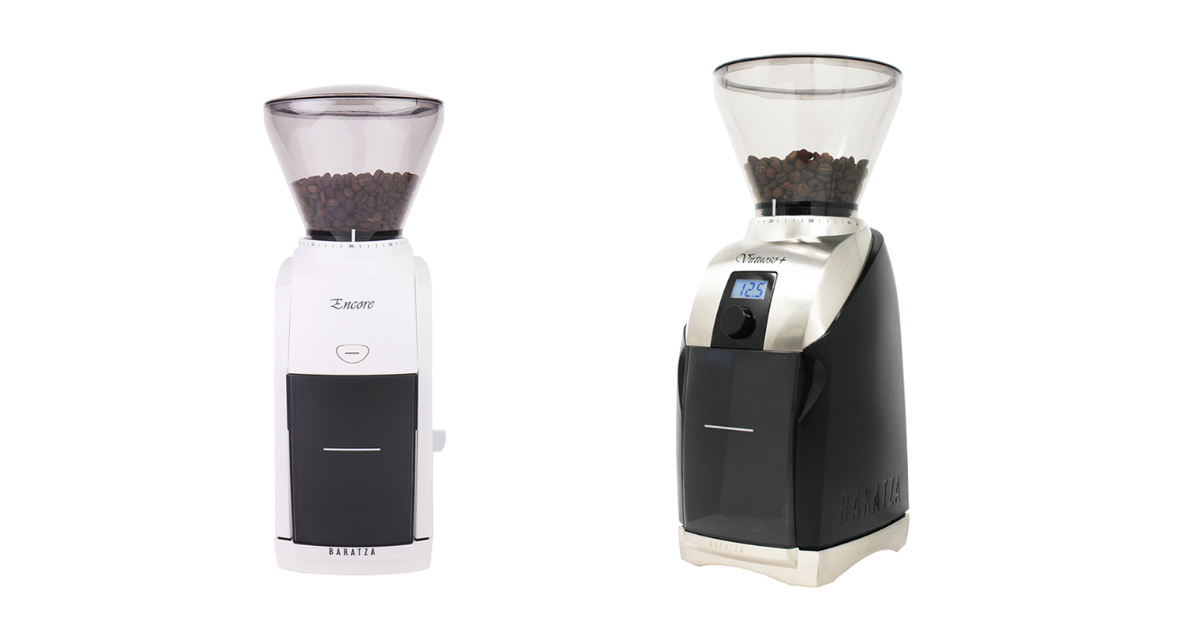So you’ve chugged down the entire cup of decaf, only to feel even thirstier.
Naturally, this got you thinking – is decaf coffee dehydrating?
In short, no. But the answer is not exactly black and white.
Let me explain.
Is Decaf Coffee Dehydrating?
It’s not unusual to have a dry mouth after drinking decaf coffee. But that doesn’t necessarily have to be a sign of dehydration.
After all, coffee is 98.75 percent water.
In fact, your drinking coffee does count towards your daily liquid intake. So how could it have a dehydrating effect?
And really, there’s no scientific evidence that drinking decaf coffee dehydrates you. There’s not a single compound found in it that would cause your body to lose more fluid than you have originally drank.
Research done on the subject proves this theory. A study was done with a group of 50 coffee drinkers, and half of them were asked to drink 26.5 ounces of coffee for 3 consecutive days. The rest of the group was drinking the same amount of water.
It turns out that all of them had the same hydration level, regardless of the liquid they were drinking.
Okay, but what about the dry and puckery feeling in your mouth, you might ask?
Well, that’s a result of something else. That sensation is called “astringency,” and it’s caused by tannins, compounds found in many plant species, including coffee. These compounds bind with proteins in our saliva, creating this unpleasant mouthfeel.
Is Decaf Less Dehydrating Than Regular Coffee?
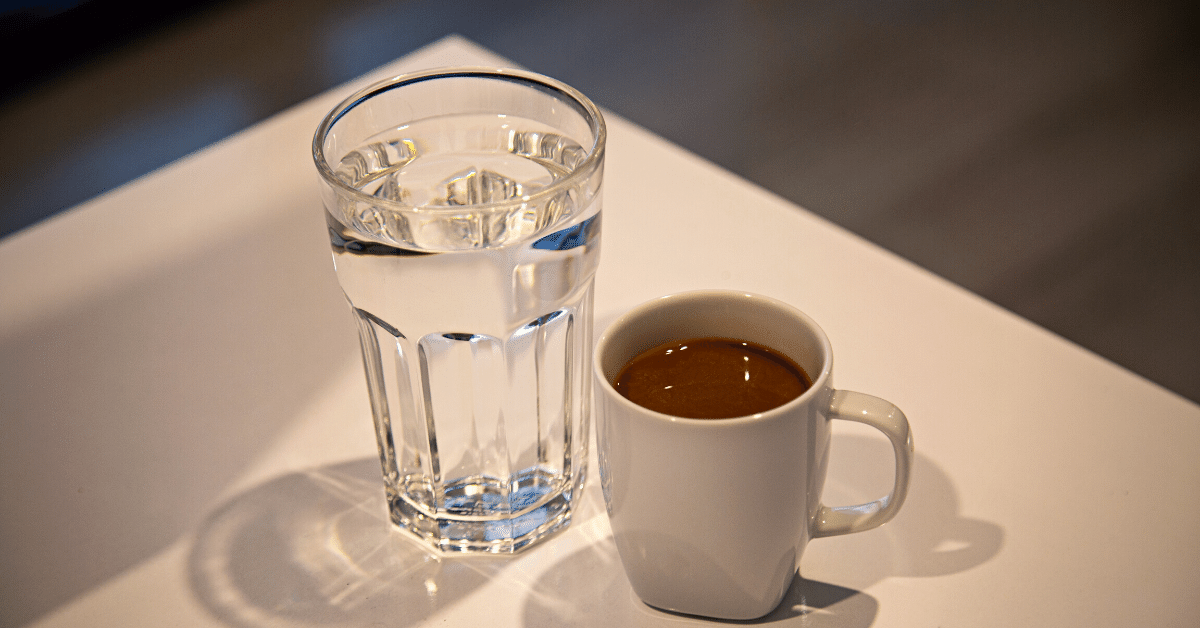
Have you noticed that regular coffee makes you use the bathroom more often?
That’s because of caffeine, which is considered to be a mild diuretic. A diuretic is a substance that increases the amount of water and salts your body discharges through urine.
If your body is flashing more liquid than you’re intake, you’ll get dehydrated, right?
Well, here’s the thing:
When you’re drinking caffeinated coffee, you’re not just taking in caffeine, but water as well. And since caffeine is considered to be a “mild diuretic,” there’s a negligible difference between the amount of liquid that goes in and out of your body.
In other words, there’s very little chance that regular coffee can dehydrate you.
To actually feel the diuretic effect of caffeine consumption, you’d have to drink about 40 ounces of coffee per day. In terms of caffeine content amount, that’s more than 500 milligrams a day, which is way past the recommended daily limit.
Since decaf coffee contains less than 3% of caffeine, you won’t feel the diuretic effect even if you drink a gallon of it. In terms of hydration, decaffeinated coffee counts toward your daily liquid intake.
This Is How Decaf Coffee Affects Your Body

As we already established, feeling thirsty doesn’t actually have to mean you’re dehydrated.
Your mouth is not dry in the literal sense of the word. Rather, it’s thanks to tannins found in coffee that you’re experiencing a rough mouthfeel. While this sensation can be rather unpleasant, there’s no need to worry about your hydration levels.
But aside from astringency, there are other ways decaf coffee consumption affects your body.
Decaf coffee is often made with bolder coffee bean varieties than its caffeinated counterpart. That’s a simple and cheap way for coffee brands to avoid their products tasting bland.
Robusta varieties are commonly used in decaf, and these beans contain a higher amount of fat compared to Arabica. And these fats in decaf coffee can increase your bad cholesterol.
One thing decaf coffee doesn’t do is stimulate your nervous system. Without caffeine to disrupt your circadian clock, you can maintain a regular sleeping schedule.
When awake, our bodies produce a compound named adenosine, which acts as a nervous system depressant. The amount gradually increases throughout the day, causing us to feel more tired as hours go by.
In other words, adenosine depletes the body of energy, so that we can fall asleep.

When you’re drinking regular coffee, caffeine blocks adenosine receptors. But with decaf, there’s nothing to interfere with your 24-hour sleep-wake schedule. You’ll actually feel your energy go down as the day passes by.
Decaf coffee is lower in acidity than its caffeinated counterpart. This means it will be much gentler on your stomach and easier to digest. This is especially important for those suffering from acid reflux.
In rare cases, coffee decaffeinated with methylene chloride can cause headaches and drowsiness. That occurs because inhaling this compound slows down your central nervous system.
FDA prevents that from happening by limiting the amount of methylene chloride in the product to 0.001%. However, brands aren’t required to disclose information about the decaffeination process on the label. This means the actual product might contain more than it’s allowed.
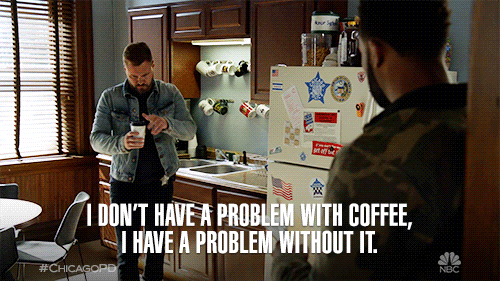
In case you’re switching from normal coffee to decaf, you might go through the withdrawal. The lack of caffeine intake can cause you to feel fatigued, anxious, and even depressed.
But don’t worry, decaf coffee won’t make you feel like that for too long. The withdrawal symptoms usually last between 2 and 7 days, after which you’ll get used to decaf.
To Sum Things Up
In moderate amounts, decaf coffee keeps you hydrated the same way plain water does. But due to certain compounds found in it, you might feel thirsty even when you aren’t. Luckily, you can fix that by drinking water along with your coffee.
Just keep in mind that, while it counts towards the daily liquid intake, coffee should never completely replace water intake.
Need suggestions for instant decaf? Check out our article about the best instant decaf coffee on the market.


